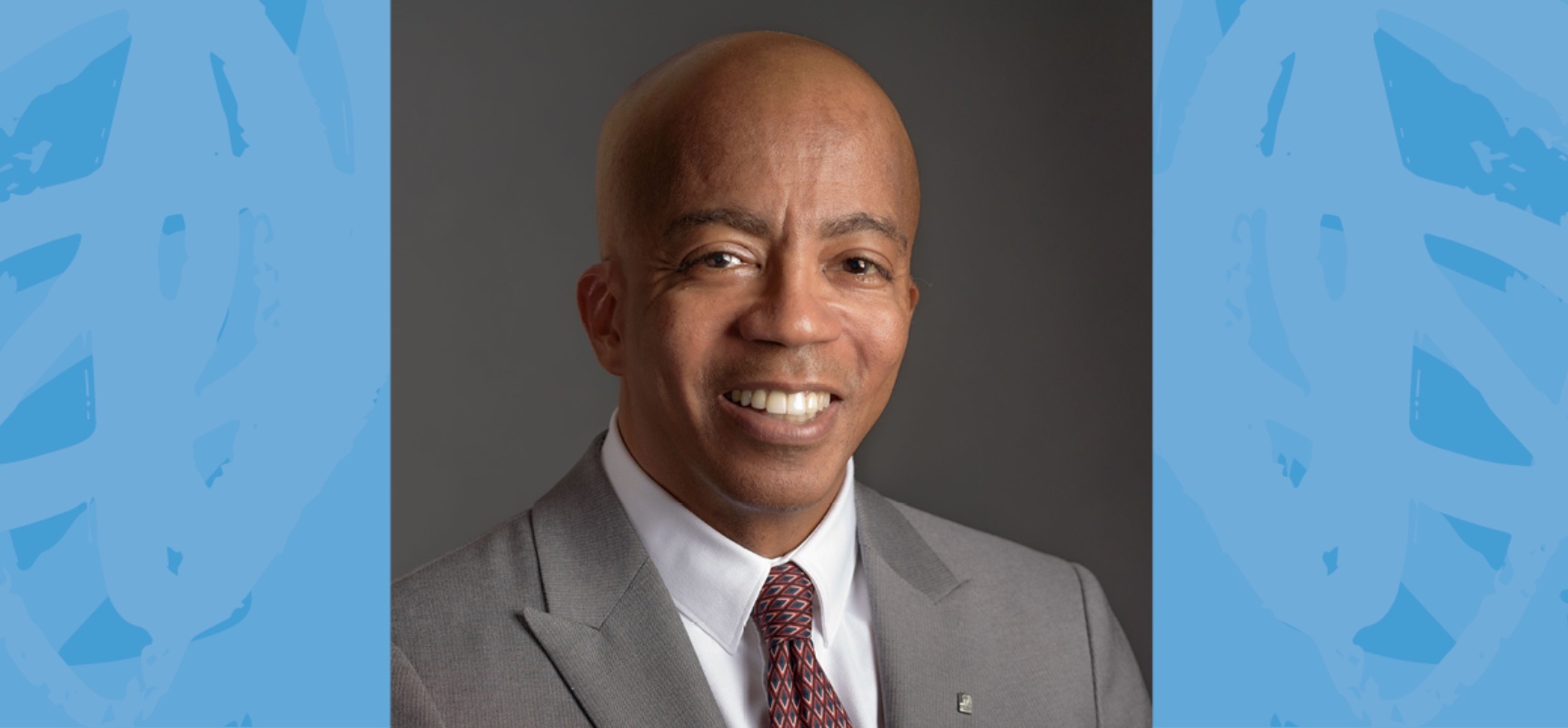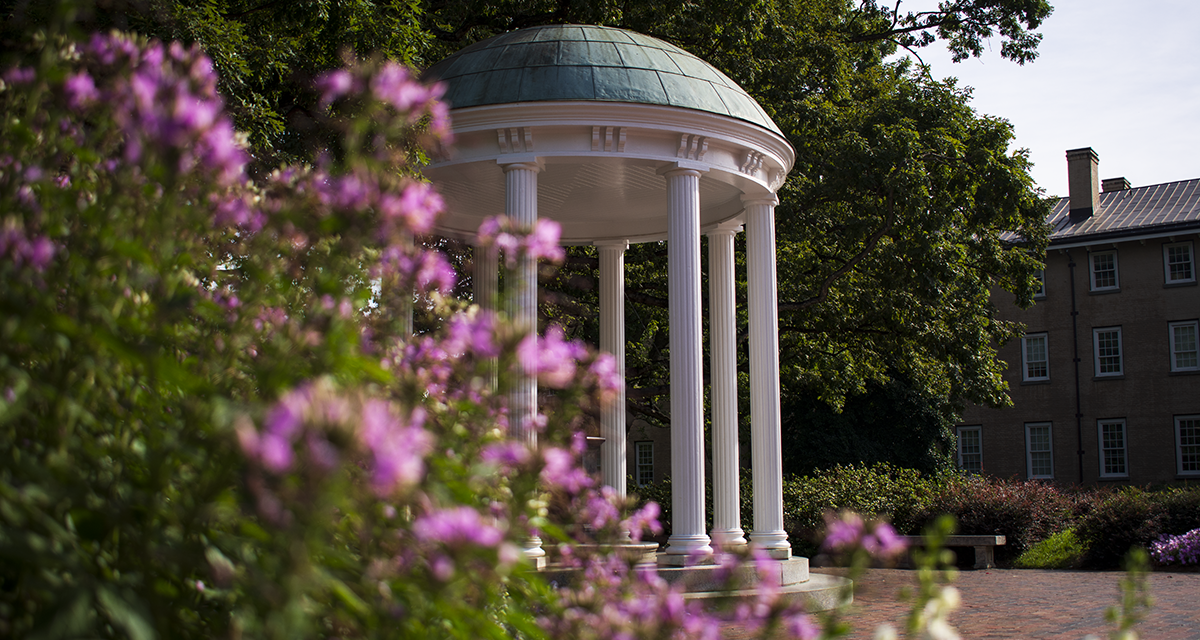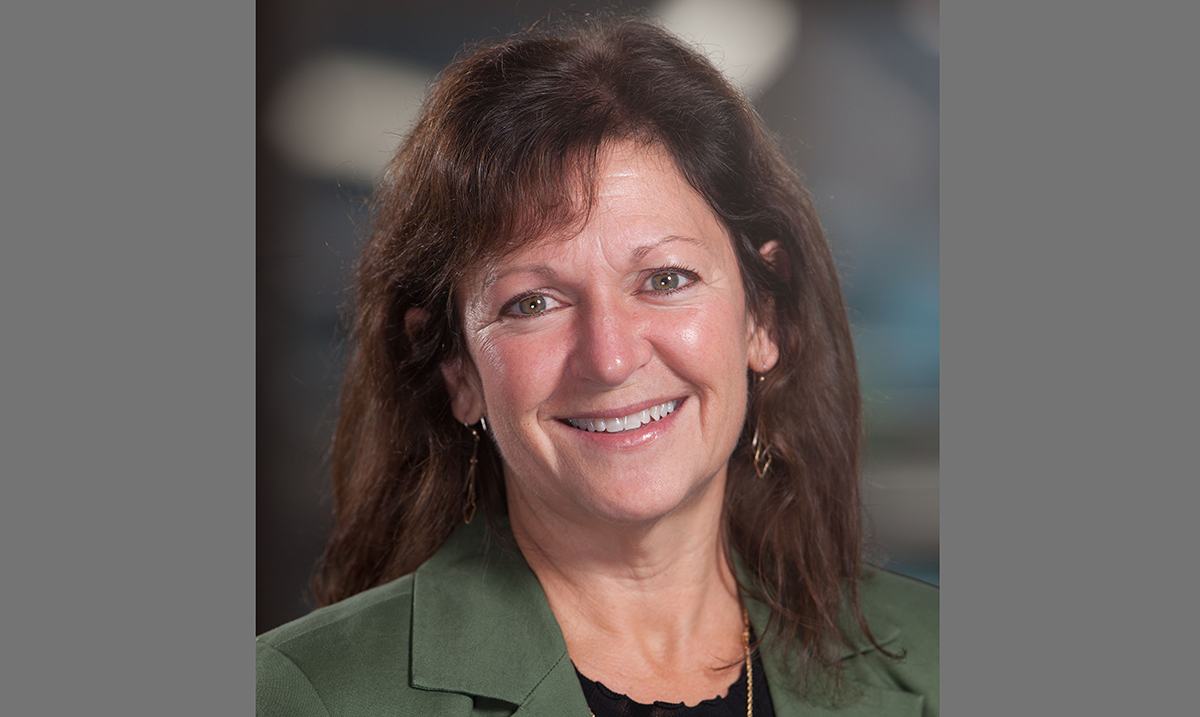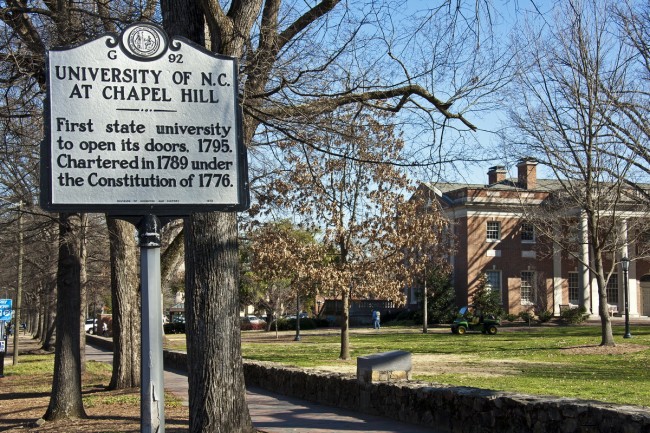The UNC School of Social Work announced its selection for vice dean — a new position — on Thursday: Robert Hawkins, who currently is an associate dean for North Carolina State’s College of Humanities and Social Sciences. Hawkins holds a Master of Public Administration from UNC School of Government and a doctorate in social policy from Brandeis University, and will help navigate faculty affairs and operations as the UNC School of Social Work continues to grow. He will begin the role effective July 1.
The Henderson, N.C. native joined 97.9 The Hill’s Andrew Stuckey for an interview the day his hiring was announced to share more about his emotions around returning to his alma mater, why he believes social work is important, and how he hopes his leadership will help the UNC school in its ongoing efforts.
Below is a transcript of the conversation, which has been lightly edited for clarity and brevity. The full interview can be listened to here.

Robert Hawkins, who will join the UNC School of Social Work as its first vice dean on July 1. (Photo via UNC School of Social Work.)
Andrew Stuckey: Today was a big day! What do you anticipate the next couple months being like while you’re in this transition between positions?
Robert Hawkins: I think it’s gonna be a lot of learning about the school. I’m actually pretty well versed in the UNC School of Social Work. I’ve admired it for years, I actually worked there now decades ago. But [I’ll be] trying to familiarize myself with some of the various projects, meet the faculty, meet the staff. I’m really looking forward to learning more about what folks are doing, the journey that they’ve been on, and how I can contribute.
Stuckey: The U.S. News & World Report rankings are not necessarily the be-all end-all metric for determining how a school’s doing, but the School of Social Work being ranked fourth nationally is still pretty impressive.
Hawkins: Well, I feel that the ranking is something very special. Of course every program, every school wants to be ranked in the top four, top five, whatever. So, that is important and it’s impressive. It is not everything that a school is, though, nor is it everything that a school or university can offer. But I feel with the UNC School of Social Work, it has long had a reputation of being outstanding — of being a place where there was strong community engagement, where research has been just excellent, where students get a really high quality education. So I think that ranking is well-deserved from my perspective, but I think it’s a little off. I think UNC School of Social Work is number one! But ultimately, I think it reflects the hard work and the excellence that the school community has been engaged with for decades.
Stuckey: I wanted to talk a little bit about the importance of having a graduate school of social work. What is the actual work that you’ll be doing on a day-to-day basis that you are drawn to and that you’re gonna find most impactful?
Hawkins: I think it’s important to look at what I’m going to do on a daily basis at two levels, maybe even more. Definitely on a day-to-day basis, I’m going to be the internal dean of the school. I’m going to be in charge of the operations of the school: working with the various associate deans, working with center directors, making sure that we can maintain the work that we do and build on it. The other level is that I’m also going to be bringing in some of my own research as an administrator. That won’t be my main priority — but just from a professional and personal perspective, I want to maintain my work in poverty reduction, working with individuals and communities to help them better their situation. And, at the end of the day, that’s really also what the school does. The UNC School of Social Work focuses on equity, helping people find opportunities, creating opportunities, moving people from poverty to a stronger economic state. Those types of things are important to me, so it’s reflected in the work that I do — but my work is reflected in the School of Social Work.
Stuckey: I’m thinking anecdotally here, but it seems that in recent years, there’s been kind of an increased importance placed upon social workers. I’m thinking specifically of police departments across the country starting trending towards starting to employ social workers, and looking at social workers as an appropriate first responder rather than a uniformed, weapon-carrying police officer. On the educational side, are you seeing that as well? Do you feel like there is an increased focus on the work of social workers now as opposed to 10 or 15 years ago?
Hawkins: Oh, absolutely. I spent 18 years at the New York University School of Social Work, so I lived in New York City. And there were so many times when I saw things happen, and I would think to myself, ‘I wish they had hired a social worker’ or ‘I wish a social worker was part of this team.’ Fast forward to now, and what we are seeing is police departments realizing that too. Teachers now have stronger connections to social workers, universities are recognizing that their students are going through a mental health crisis. So, they need stronger and better access to social workers. I think your perception of what is going on is real.
And so for many of us, when we look at what’s been going on pre- and post-COVID, one of the things that [the pandemic] brought out was a recognition of a mental health crisis. We sort of recognized it as a struggle, but we are seeing the ramifications of not addressing mental health. Once we started to look at that, we realized we need more social workers involved in these folks’ lives. I’m excited to see that we’re using social workers better and more often. Communities are paying attention to the work that social workers do, police departments are paying attention to what social workers do… and I think that’s important.
Stuckey: Obviously, you’re not fully on the job yet, but on the educational side, are we seeing an increased urgency in schools of social work as that, as there’s more of a call for social workers. Is there more interest in the field, is there more institutional interest in opening up the field to more people? What trends are you seeing in education?
Hawkins: One of the things that we are seeing — and this is true in North Carolina, but true in virtually every state in the country — is growing need for social workers and a growing interest in social work. I believe social work is one of the fastest growing professions right now, and I think that stems from a realization that there’s a strong need. One of the big barriers that I’ve been advocating [against] for years is to pay social workers what they are worth. That’s one of the things that, as a leading school of social work, we could address. But increasing payment for social workers, increasing the awareness for social workers [is critical].
One of the interesting things that I’ve noticed over the past few years is that people have a better understanding now than they did 10 years ago of what social workers do. For years, we thought social workers took children away from families. But that old stereotype, I think, is shifting — thankfully. We understand that social workers are practitioners. They work one-on-one with individuals and with families. We have social workers who are policy makers. We have social workers who work with communities and community organizations. We have social workers who are managers. The list goes on and on. I can honestly say that I know a social worker in almost every field, and I think that’s relatively new. So, I think we are understanding that a social work degree — particularly a master’s in social work — is one of the most versatile degrees, because what you’re really focusing on is human relationships. If you have an understanding of how people function in systems, how to advocate for people, how to help people gain access to resources, then you are learning a skill that can be useful in virtually any field.
Stuckey: We are just about out of time — is there anything else that you wanted to mention about your new role that we haven’t gotten to yet?
Hawkins: Well, I just want to say that coming back to UNC is really a homecoming for me. I am extremely excited about the work that UNC School of Social Work does locally, nationally, and even globally. We are extremely impactful. Social workers are working every day on the ground, and the UNC School of Social Work represents kind of the best of that. And I’m so excited to be part of what I consider excellence.
Chapelboro.com does not charge subscription fees, and you can directly support our efforts in local journalism here. Want more of what you see on Chapelboro? Let us bring free local news and community information to you by signing up for our newsletter.







